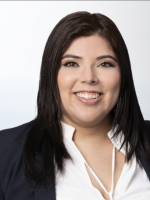On April 8, 2025, Acting SEC Chairman Mark T. Uyeda gave a speech signaling that the SEC may revisit the current minimum assets under management (“AUM”) threshold for federal registration, potentially reducing the number of investment advisers required to register with the SEC. Though Uyeda’s time as Acting Chair has now ended due to the confirmation of Paul Atkins as SEC Chair, Uyeda’s willingness to raise the issue publicly suggests he expects Atkins will carry the initiative forward.
In his remarks at the Annual Conference on Federal and State Securities Cooperation, Uyeda stated that he had directed SEC staff to evaluate whether this threshold — unchanged since 2012 — remains appropriate given the current market and the SEC’s regulatory priorities. The specificity of the speech, and in particular the statement that he had asked the staff to evaluate the current framework, likely indicates that the proposal process has already begun.[1]
An increase in the minimum threshold could mean that currently SEC-registered investment advisers falling below the new threshold would withdraw their SEC registrations and register with state regulators or, alternatively, claim exemptions at the state level (if available). The prospect of state-level registration may be bittersweet for some investment advisers. While some advisers may be eager to escape from SEC jurisdiction, state regulators may be less familiar with the complex transactions, fund structures and terms and other market practices that are the norm across private funds. This could pose challenges, and an adviser’s experience can vary widely depending on the regulators with which it is registered.
Key Takeaways for Investment Advisers
- Currently, investment advisers with more than $100 million in AUM[2] must register with the SEC unless an exemption applies (for example, exemptions are available for private fund advisers with AUM below $150 million, as well as for advisers to venture capital funds).
- If the SEC were to increase the AUM threshold at which an adviser is required to register with the SEC (which it could accomplish through its current rulemaking authority under the Advisers Act), affected advisers that are currently SEC-registered or are claiming exemptions from SEC registration, but that have AUM below such new threshold, would be required to withdraw their SEC registrations or exemption filings and, if required, would register with applicable state regulatory authorities (unless an exemption applies at the state level, such as the state-level equivalents of the SEC’s “exempt reporting adviser” exemptions that have been adopted in many states).
- This development is consistent with the broader theme in recent months of the SEC seeking to recalibrate certain rules to ease burdens on smaller firms.
Why the SEC may revisit the $100M AUM Threshold
Uyeda suggested that he believes that the current threshold may no longer reflect the intent behind the threshold, which aimed to reserve SEC oversight for larger investment advisers.
The Dodd-Frank Wall Street Reform and Consumer Protection Act of 2010 (the “Dodd-Frank Act”)[3] increased the AUM-based registration threshold to its current level.[4] The purpose, as expressed at the time, was to decrease the number of advisers registered with the SEC. As a result of the law and associated rule changes, more than 3,000 investment advisers withdrew their SEC registration.
In his recent speech, Uyeda noted the number of SEC‑registered advisers has grown by approximately 45 percent since the last adjustment.[5] Uyeda suggested that it would be consistent with Congressional intent for certain “mid-sized” firms to be subject to registration at the state level instead of with the SEC.
Additional Proposal: Streamline Interplay of Federal and State Laws in Regulation of Securities Transactions
Uyeda also suggested re-evaluating the current system of federal pre-emption of state securities laws in connection with securities issuances, resales and other securities transactions. As he noted, the question of whether federal laws pre-empt state laws — which affects, among other things, whether an offering of securities by a private issuer must comply with state securities laws in addition to federal law — can be complicated, which can hinder capital formation. His suggestion is consistent with the theme of recalibration that has been emerging from the SEC over the past several months.[6]
Uyeda’s Remarks in Broader Context
Uyeda’s remarks are not a formal proposal but are a clear indication that this area is ripe for regulatory reform. This adds to a growing list of developments that investment advisers and issuers alike will be monitoring closely as the new administration continues to build momentum.
[1] While nothing is guaranteed, similar statements by previous Chairs have presaged later SEC actions. For example, in a 2021 speech to the Institutional Limited Partners Association, then-Chair Gensler stated that he had “asked the staff to consider” various recommendations that closely tracked the framework of the now-voided Private Fund Adviser Rules, and made similar statements that tracked the 2022 amendments to Form PF. Prior to that, Acting Chair Lee gave a speech signaling the beginning of the rulemaking process on the SEC’s Climate Rule, as well as amendments to Form N-PX that were later adopted and a proposal relating to fund and adviser ESG metrics.
[2] Or more than $25 million, for advisers whose home state would either not require them to register with the state or, if registered at the state level, would not be subject to examination by the state.
[3] There were, and remain, other reasons beyond AUM that can cause or permit an investment adviser to register with the SEC. For example, an investment adviser that would be required to register in numerous states is permitted to register regardless of AUM, and an investment adviser to a registered investment company is required to register regardless of AUM.
[4] The Dodd-Frank Act also removed the private adviser exemption, which exempted advisers with fewer than 15 clients from registration regardless of AUM. Advisers to private funds frequently were able to rely on this exemption from registration because the adviser’s clients are its funds and not the underlying investors.
[5] Though not directly noted in the speech, Uyeda has been associated with previous efforts by the SEC to update thresholds that result in additional regulatory oversight or obligations. For example, he was listed as a senior member of the team that drafted the 2020 proposal that would have raised the threshold to file Form 13F.
[6] The SEC is not the only financial regulator considering recalibration; in the UK, the Treasury Ministry recently called for input on a proposal that would significantly increase the threshold for full scope AIFM registration, as well as several related reforms.





 />i
/>i
